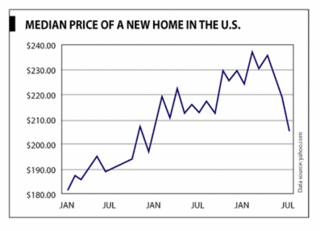Energy and Financial Instability
In 2002, in The Listener, a popular NZ magazine, a letter to the editor was published that said as plainly as it could: "Oil is going to decline soon." It bade readers to take heed. Those that followed the directions to www.dieoff.org were in for a short sharp shock. Skeptics may have brushed it all off and put their faith in human ingenuity, but events over the intervening years have decisively brought the topic of peak oil to the fore.
At about that time a book was being written by Richard Duncan, formerly a consultant to the IMF and employee of the World Bank. Duncan, an economics and literature graduate with years of professional experience behind him, including a close study of the Asian crisis of the late nineties, provocatively titled his book "Dollar Crisis". Again, many would have given his analysis scant regard. But time has been kind to his conclusions as well.
Day by day these two subjects are more and more entwined. Energy and financial instability are joined at the hip, marching into a tumultuous future.
Since 2003, when Dollar Crisis was published, it has become more and more evident that Duncan's central thesis was correct. He held that the expansion of credit throughout the nineties had created imbalances in the global economy that could only be rectified by a correction in the value of the US dollar, much like he had observed first hand while working for the IMF in Thailand. It was also clear at the time that he was writing that the efforts of the Federal Reserve to inject credit into the flagging equity market after the 2001 bust would only increase the hazard.
This has become almost received wisdom. In fact being a US dolar bear has become rather au fait. The Economist magazine ran a cover touting the endangered status of the greenback, Steven Roach from Morgan Stanley has preached from his Wall Street pulpit on the imbalances and the threat of financial cataclysm, and countless goldbugs, peakniks and assorted analysts have watched on with interest. If you are unconvinced by this choir of dissenters, try the General Manager of the Bank of International Settlements.
But Duncan was very clear as to when he thought correection would come:
"When the US property bubble pops. In 2002 the global economy is being supported by an American shopping spree that is being financed by a bubble in the U.S. property market." (Duncan, Dollar Crisis, pp.189)
It has of late become very difficult to avoid the words 'housing bubble'. From being labeled just unfounded pessimism as little as a year ago, it is now widley accepted that property price rises have become unsustainable.
So it was not surprising to see this graph that came out of US housing data recently:

THere is no saying whether this is the beginning of a real bust for house prices, but it does look pretty nasty at first glance. Volumes are still up, but it is the price that will obviously determine how easily people will be able to refinance and continue spending.
Over to the energy sector. The long term effect of Hurricaine Katrina on energy markets is still unclear. What is clear is that two very important things have happened. A sizable amount of oil and particularly natural gas production are going to be off line for months. Also a significant percentage of refinery capacity will be out for a similar time. Having refinieries out, and with the US and EU governments opening their petroleum reserves, crude prices have fallen. But this is not going to help refined products. Gasoline and heating oil are going to be problematically expensive for some time, as is natural gas.
So as winter begins we will likely find consumers being pinched by energy costs and by a deteriorating property market. That will not be a pleasent outlook for retailers in the run up to Christmas, which will not please manufacturers, transport firms and so on. This article is an interesting look at how this sort of thing begins in your home town and ends up affecting the whole country, and then of course the rest of the world...
Where does that leave us? Another autumn bust in the markets? Perhaps this article might be instructive. It concerns the work of an MIT finance professor and hedge fund manager, Andrew W Lo, who has been studying the economics of the hedge fund market. He has concluded that hedge funds that are invested in illiquid assets such as real estate and interest rate swaps (are there any that aren't!?) are prone to very sudden and catastrophic losses. Ominously he found that these corrections are often preceded by a period of mediocre performance, exactly as hedge funds are experiencing right now. Lo states that the hedge fund industry (for lack of a better word) is more illiquid than it has been for 20 years. Yikes!
So with a big bite taken out of the US energy sector and finacial imbalances abounding, are we heading for a crisis? It's far from certain when a shakeout of the economic system might occur, but it is getting too late in the day to say the night won't come.
Technorati: peak oil housing bubble energy decline economics



<< Home